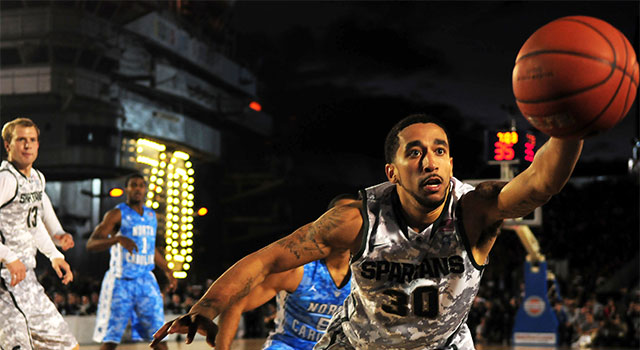 If you want to excel at your favorite sport, you may be thinking about hiring a personal trainer to fine-tune your workouts. But what about your vision?
If you want to excel at your favorite sport, you may be thinking about hiring a personal trainer to fine-tune your workouts. But what about your vision?
Muscular strength, flexibility and speed aren’t the only components of athletic success – vision also plays a pivotal role. Scoring a goal, catching a fly ball, and blocking a play all require split-second reaction time, eye-hand-body coordination and sharp peripheral vision. Strong depth perception skills can cut your reaction time in half. There’s no question that improving your visual skills can make a significant difference in your game.
Your Fort Worth sports vision optometrist holds the key to unlocking your best performance. Just as a personal trainer creates a routine to strengthen your body, a sports vision optometrist creates a customized program of eye exercises to strengthen the visual skills essential for your sport.
What Visual Skills Does Sports Vision Training Develop?
While we need visual skills to navigate a crowded sidewalk or to judge the distance from the [curb] when we park, excelling in sports requires a higher level of visual skills. The problem is, many athletes don’t realize that some of their visual skills may be deficient, or that sports vision training can help them improve these skills.
Some of the visual skills that sports vision training can help you improve include:
- Focusing – transferring focus from one object to another
- Peripheral vision – seeing objects at the edge of your field of vision
- Dynamic visual acuity – the ability to see objects clearly while in motion
- Hand or body-eye coordination –the ability to use information from our eyes to guide hand or body movement
- Depth perception – the ability to judge the distance of objects
- Reaction time – how quickly you react to visual stimuli
What Does a Sports Vision Optometrist Do?
While coaches may be aware of the crucial role vision plays in sports performance, they lack the credentials to deal with the complex visual system. This is where sports vision training can help.
A sports vision optometrist is an eye doctor with extensive training in sports vision. Teams, coaches and athletes seek the assistance of these experts to build visual skills that can transform athletic performance. Some are known affectionately as “vision coaches” who help athletes develop a competitive advantage.
During your sports vision eye exam your eye doctor will assess your eyesight and evaluate your visual skills. Based on the results, the eye doctor will create a customized sports vision training program to strengthen any sub-par visual skills so you can excel at your favorite sports.
Some of these exercises may include:
- Moving focus from one object to another to develop focus flexibility
- Observing and detecting objects from the side to build peripheral vision
- Detecting fast-moving objects for dynamic visual acuity
- Performing a vision-oriented task with objects close up and then farther away to improve depth perception
Want to gain a competitive edge? Get your vision into shape! Find out how a sports vision optometrist can help you improve your game by scheduling an appointment with Southwest Family Eye Health Center today.
Our practice serves patients from Fort Worth, River Oaks, Westover Hills, and Dallas, Texas and surrounding communities.
Q: Can my vision be trained to improve sports performance even if I have 20/20 vision?
A: You don’t have to have a vision problem or eye condition to benefit from a sports vision training program. The focus of treatment is to improve visual skills such as focusing, eye-hand coordination, eye tracking and more. Just as running hills and lifting weights can make an already fit body stronger, sports vision exercises will strengthen your visual skills to enable you to reach your athletic potential.
Q: Does sports vision training work well for basketball players?
A: Yes. Some basketball teams now include sports vision training in their training regimen. If you want to refine your basketball game, a sports vision specialist can help you develop skills necessary for basketball, including:
- Peripheral vision
- Quick reaction to visual stimuli
- Hand-eye coordination
- Predictive visual memory

